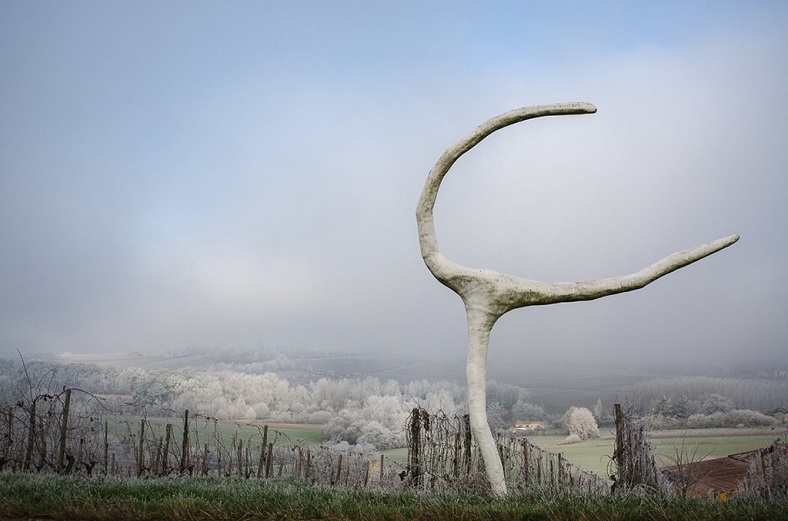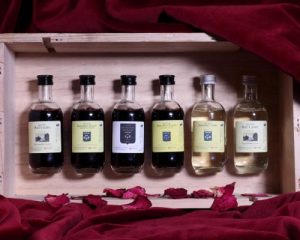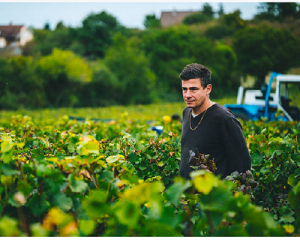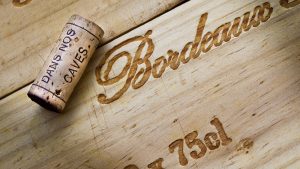
You might think you’ve heard it all when it comes to grape varieties, appellations, and viticultural regions, but this allocation of the week is bound to challenge even the most seasoned wine enthusiast. This appellation is still somewhat under the radar, although it has really taken off over the past few years. The rising success we have seen is thanks to ambitious wine makers like Elian Da Ros. The appellation’s pioneer, he was one of the first to pull out of the cooperative in order to start making his own wines and put the Côtes du Marmandais on the map.
Elian is what we might call ‘home-grown’. His grandparents, Italian migrants, arrived in France in 1922 when labourers were needed to work on the region’s farms. His grandfather began in this way, later becoming a sharecropper before purchasing his own land and developing a polyculture farm. During this era, the farm was mainly for growing tomatoes, Marmande tomatoes being reputed for their flavourful character. On the same land, vines, vegetables and grains were cultivated. The next generation – Elian’s father – saw fit to replant the vines, a sign of good intuition that this would later become land reputed for the quality of its crus. When he was little, Elian had a firm conviction about his ambitions: “I’m going to be a farmer like grandad”. This aim was refined over time, as Elian realised it was the vines that interested him the most. His parents did attempt to encourage him in a different direction, explaining that vineyard work is particularly arduous. But it was from his grandfather that he inherited a true love for working the land, enthused by the liberty it gave him: “thanks to my grandad, I understood that this vocation would allow me to shape my life as I wish. He would tell me ‘when it’s sunny I go to the vineyard, when it rains I do other things’, and all while pursuing a passion. What more could you want?” His path was decided: “I attended a viticultural college before going on to do a BTS in oenology in Montpellier. To broaden my skills, I also completed some business training.”
Following this, Elian worked for 5 years at a domain you might well be familiar with: the legendary Zind Humbrecht in Alsace. This is where he really learnt how to make wine, from the vineyard to vinification and maturing, at a domain that is notably exacting in its quest for perfection. After half a decade at Olivier Humbrecht’s side, Elian returned to his roots in the Marmandais to launch his own projects. And he hit the ground running, settling in Cocumont where he left the cooperative and built a winery of his own. He was, in fact, one of the first in the area to leave the system of selling grapes to the local cooperative, making him somewhat of a pioneer. In 1998, they were just two wine makers crafting their own Côtes du Marmandais cuvées. Whilst the appellation is still quite a modest one, it now has 8 producers! For context, the cooperative cellar currently represents 95% of the wine in volume and 85% in vineyard surface. 1998 marked Elian’s first successful vintage, and the 19 hectares that now make up his domain are not exactly the same as those he inherited from his father. He wished to shape the domain as he got to know it, so has held onto the finest terroirs, bought some new parcels, and let others go. Elian is helped by a team of 10 throughout the year, and then there are the grape pickers who join them for the harvest, around three weeks of the year.
This wine maker likes to highlight the individuality of each parcel and its terroir. Each cuvée is vinified according to its soil-type in order to bring its character to life. Only the ‘Le vin est une fête’ cuvée is a little different, since this one is made from grapes bought the same wine maker since 2006. That year, hail destroyed 50% of production, followed by 100% in 2007! Elian therefore had to find another way, choosing to get in touch with another producer to buy some grapes. Since then “he has become a friend, he helped me at a crucial time and now we work together every year”. 80% of the harvest is carried out by hand, and this takes around 3 weeks. Once in the winery, the grapes are sorted for a second time in order to ensure only the best fruit is used. Fermentation is instigated only by indigenous yeasts. The grape varieties are vinified and matured depending on the vintage before being blended, so that each variety can best express its profile. The wine is matured on lees, with no sulphur added and no racking. These aren’t natural wines in the strictest sense, though, and Elian has nothing to hide: “if I need to add a bit of sulphur, I will”. The domain converted to organic production in 2000 and biodynamics in 2002.
Elian’s true mission is to spread the word about the Côtes du Marmandais through his terroir-centric wines. “We’re just next to Bordeaux, but the climate is so different, as well as the grapes and the earth. That’s what makes us stand out. Wine enthusiasts are catching on about what we make here, so we just want to increase this visibility.”
Discover all of Elian Da Ros’ wines here
What do the guides say?
La Revue du vin de France
The quality of these wines and the strong personality of their producer have allowed the domain to soar to the heights of the appellation. Whites, reds, and even rosés, flavourful and matured in oak, each of these cuvées has radiant fruit and expresses a clearly defined terroir.
Bettane+Desseauve have given the domain 3 stars out of 5



